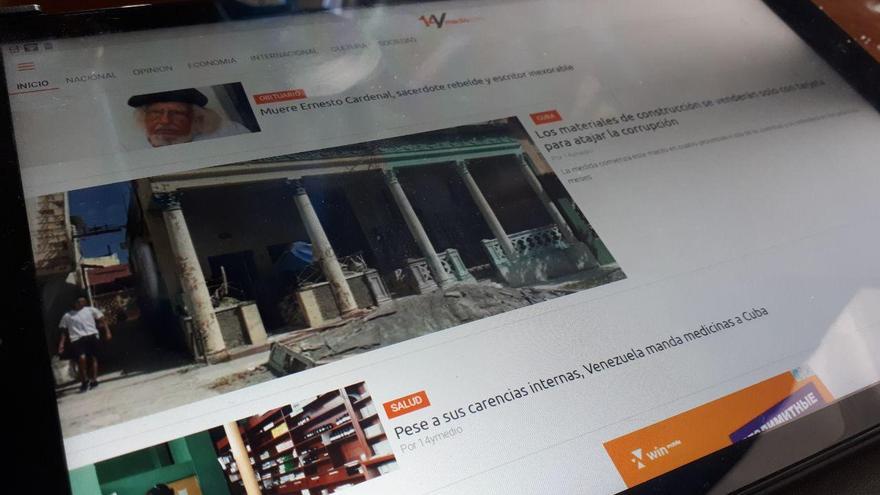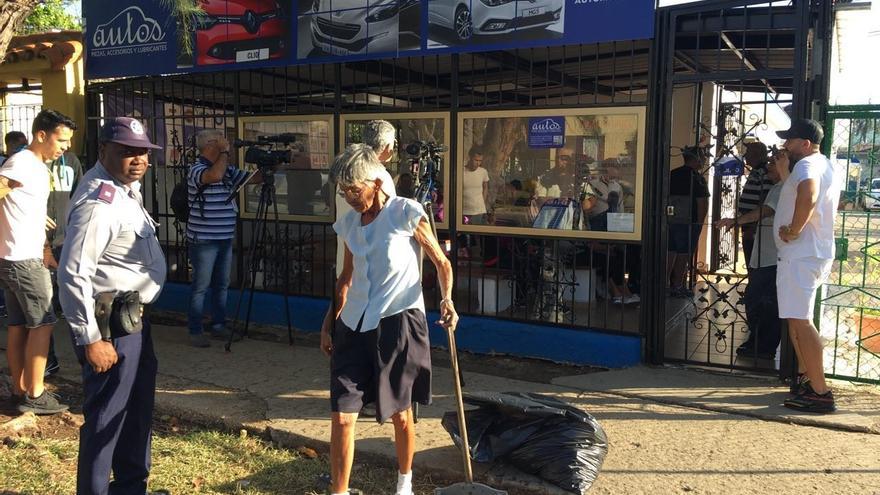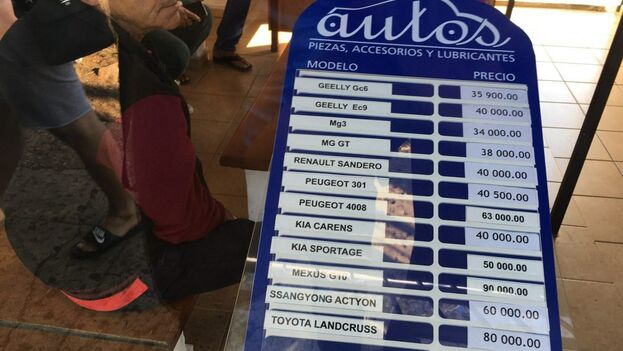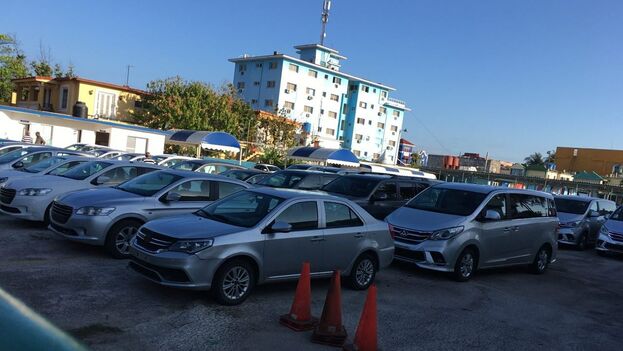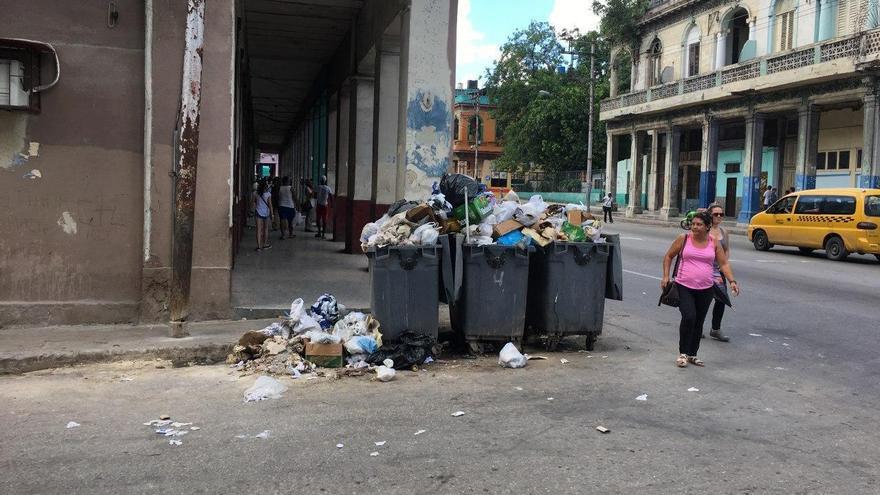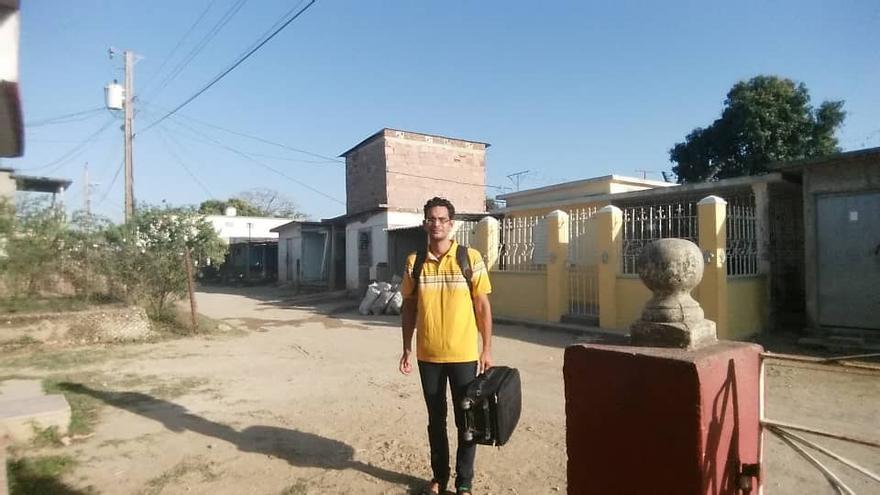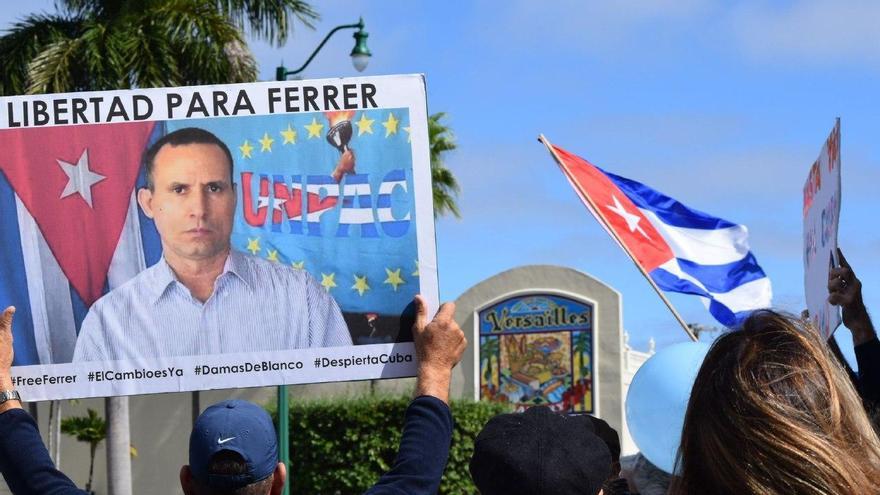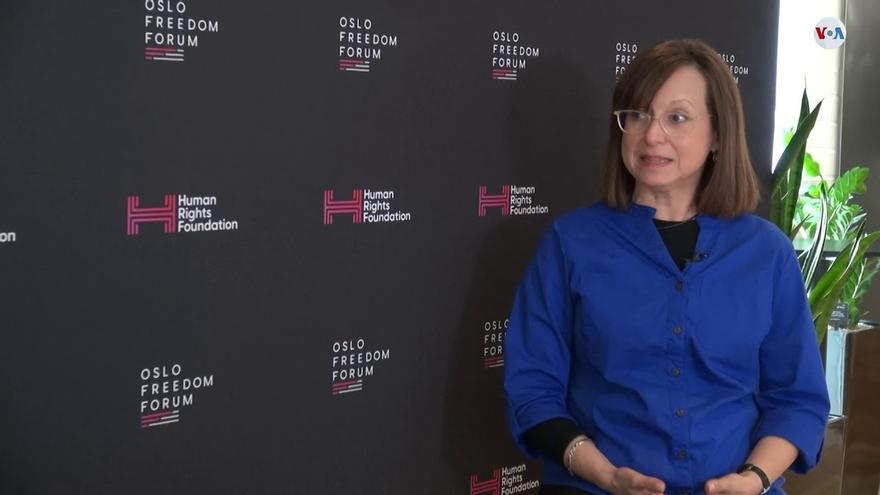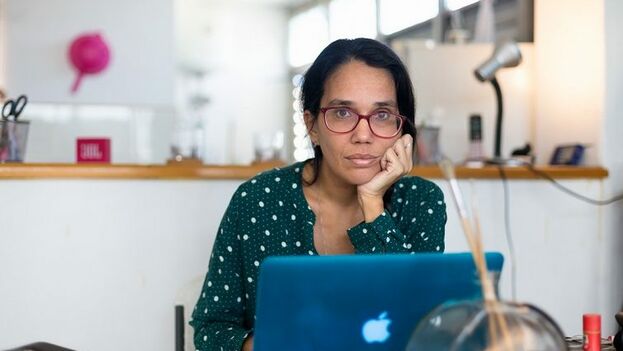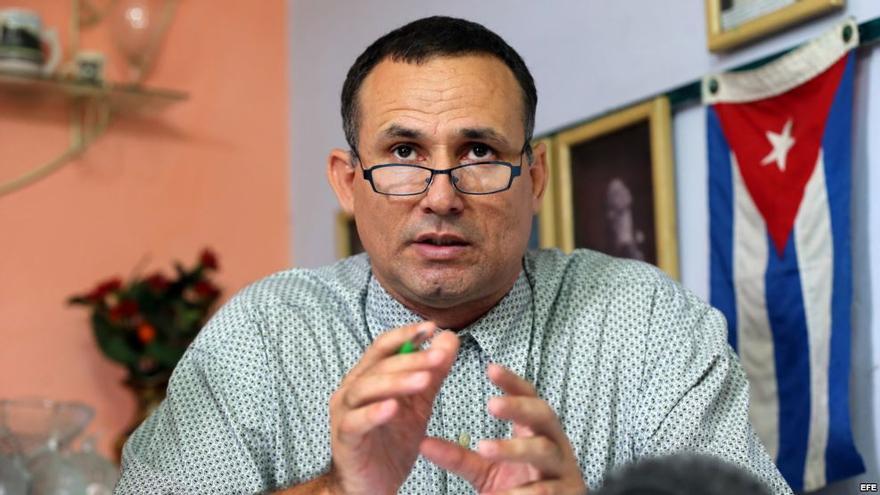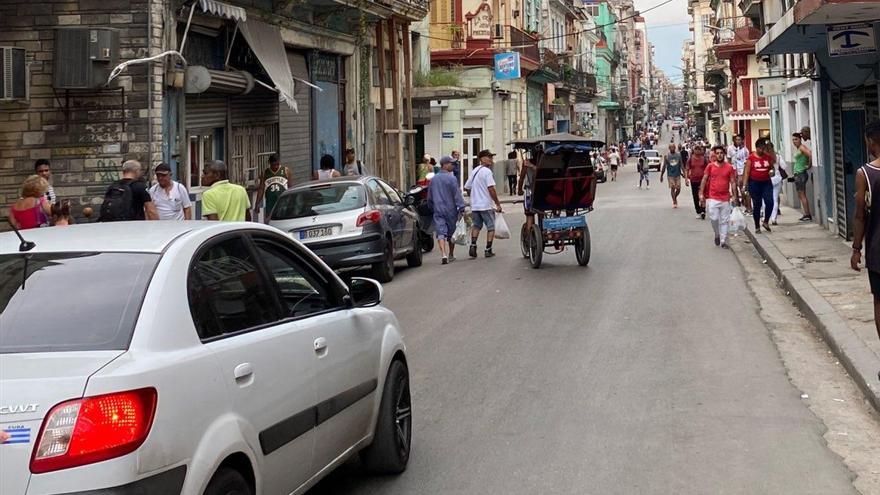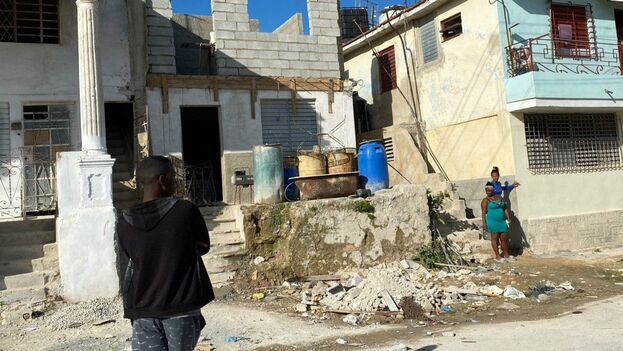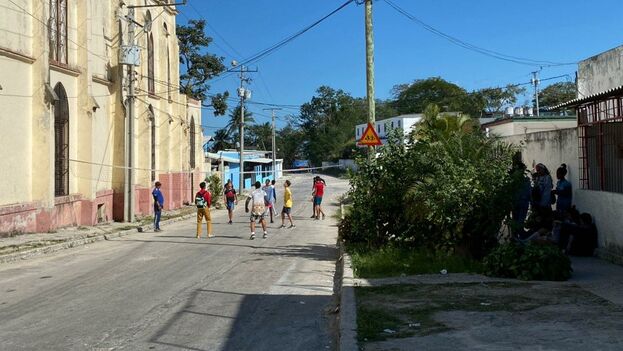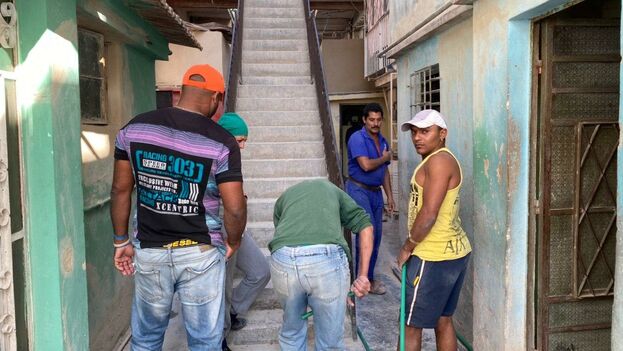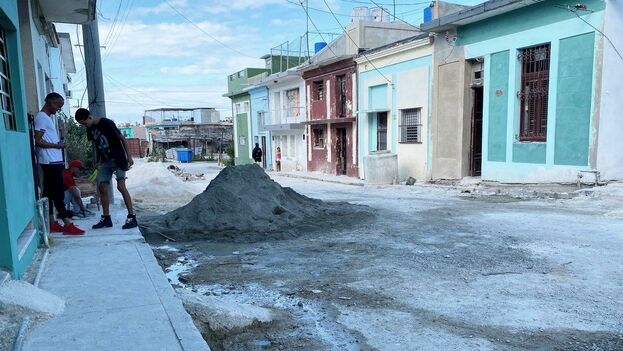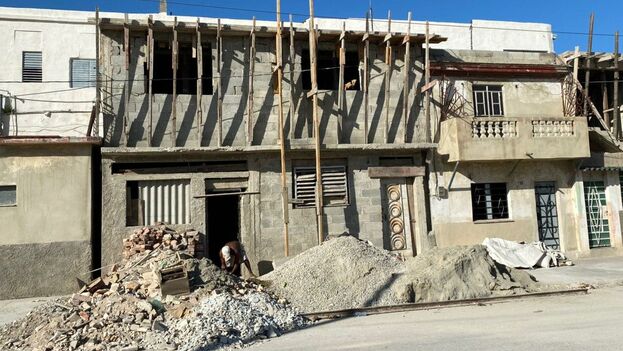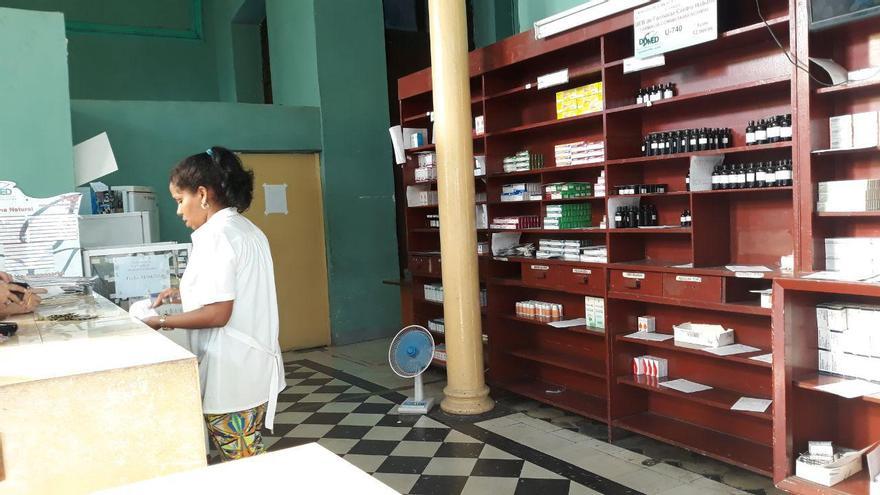
![]() 14ymedio, Havana, 2 March 2020 — The government of Nicolás Maduro will send 16 containers of medicines to Cuba this Tuesday, according to Venezuelan journalist Javier Ignacio Mayorca. The writer published through his Twitter account that the Armed Forces in the state of Vargas launched “a special unit” for this operation.
14ymedio, Havana, 2 March 2020 — The government of Nicolás Maduro will send 16 containers of medicines to Cuba this Tuesday, according to Venezuelan journalist Javier Ignacio Mayorca. The writer published through his Twitter account that the Armed Forces in the state of Vargas launched “a special unit” for this operation.
“Vargas FAN [National Armed Forces] ordered a special unit for the shipment of 16 medicine containers, donated to Cuba by the Venezuelan government. The cargo is scheduled for Monday on ship of the Armada of the Island, called Saturn. They will also deliver corn flakes, courtesy of Agrofanb,” Mayorca said.
Julio Borges, former head of Parliament and current presidential commissioner for Foreign Affairs of Venezuela, confirming the information, lamented that, despite the shortage that affect Venezuelans, the Government sends the products that its citizens need to the Island. continue reading
“Every day Venezuelans die because of the shortage of medicines, however the dictatorship prefers to send cargo to Cuba, rather than to help its own people. This only reaffirms that Nicolás Maduro is a puppet of the Castro regime, international pressure against Havana will not stop.”
Last January it transpired that 150 BioCubaFarma specialists had to leave their jobs on the Island due to a staff cut. Although the company initially hid it, it was forced by the independent press to admit it, which made the news public through the testimony of the workers.
In a statement, BioCubaFarma admitted that “due to the real situation with the unavailability of raw materials, the levels of drug production have decreased.”
The cuts in the pharmaceutical industry began at least two years ago, causing shortages in analgesics, antibiotics, recommended medications for heart disease and insulin for diabetics.
In the early 2000s, to increase its imports, Cuba promoted the pharmaceutical industry after signing collaboration agreements with the Government of Hugo Chávez that flooded the Venezuelan pharmaceutical industry.
“Venezuela went from being a market that barely received 0.53% of the exports of medicines that left Cuba in 1998, to be the destination of 97% of the drugs produced by laboratories in Havana in 2009, and by 2014 had become the almost exclusive destination of its pharmaceutical exports”, revealed a report by 14ymedio and Armando.info.
In 15 years, Cuba received some 2.2 billion dollars in revenue from sales of medicines to Venezuela. With Nicolás Maduro, the Venezuelan economic crisis, which has reduced the country’s GDP by more than 40%, forced Caracas to reduce imports by 76% in the last four years.
Last year it was Cuba that sent medicines to Venezuela. In February 2019, the Minister of Health, Carlos Alvarado, reported the arrival of a shipment of 933 tons of medicines and medical materials from Cuba, but also from China, the Pan American Health Organization (PAHO) and “some direct purchases” of the Ministry.
Alvarado explained last week that Venezuela has expanded epidemiological surveillance to face the possible arrival of the coronavirus in the country, but experts consulted by the EFE agency have warned that it is the worst prepared country in the region to face the disease, precisely because of the lack of medicines and supplies, the difficulties of the public health sector and the lack of diagnostic centers.
Julio Castro and Jaime Torres, both infectologists, consider that the protocol is insufficient and that strict measures are required to stop the expansion of Covid-19, which Venezuela has escaped so far.
“The only way to contain the virus and prevent it from spreading is with very strict, very massive measures, with the participation of the population, and health and safety authorities that are not easy to implement,” says Torres.
The doctor does not doubt that there are detection kits in Venezuela, but he believes that on the negative side is that there are not many diagnostic centers prepared, along with “the difficulties of the public health sector, hospital capacity, ability to provide services.”
The Venezuelan government has implemented surveillance at airports, a measure that has not proven effective and in many countries does not apply because the symptoms may go unnoticed during the incubation period.
Maduro said last week that “there are many analyses in the world that show that the coronavirus could be a strain created for the biological war against China (…) and against the peoples of the world.” Venezuela, he said, “fortunately” has a plan to deal with “this attack.”
The official Cuban press has also speculated on this hypothesis, although the partners are not the only subscribers to conspiracy theories. The US government began by minimizing the virus last January, stating that it was a common cold. Donald Trump, who said Friday that Covid-19 was a “hoax” of the Democrats to win the elections, had to change his tone the next day, after the first death in the US from the virus, and he announced new measures and restrictions.
______________
COLLABORATE WITH OUR WORK: The 14ymedio team is committed to practicing serious journalism that reflects Cuba’s reality in all its depth. Thank you for joining us on this long journey. We invite you to continue supporting us by becoming a member of 14ymedio now. Together we can continue transforming journalism in Cuba.

